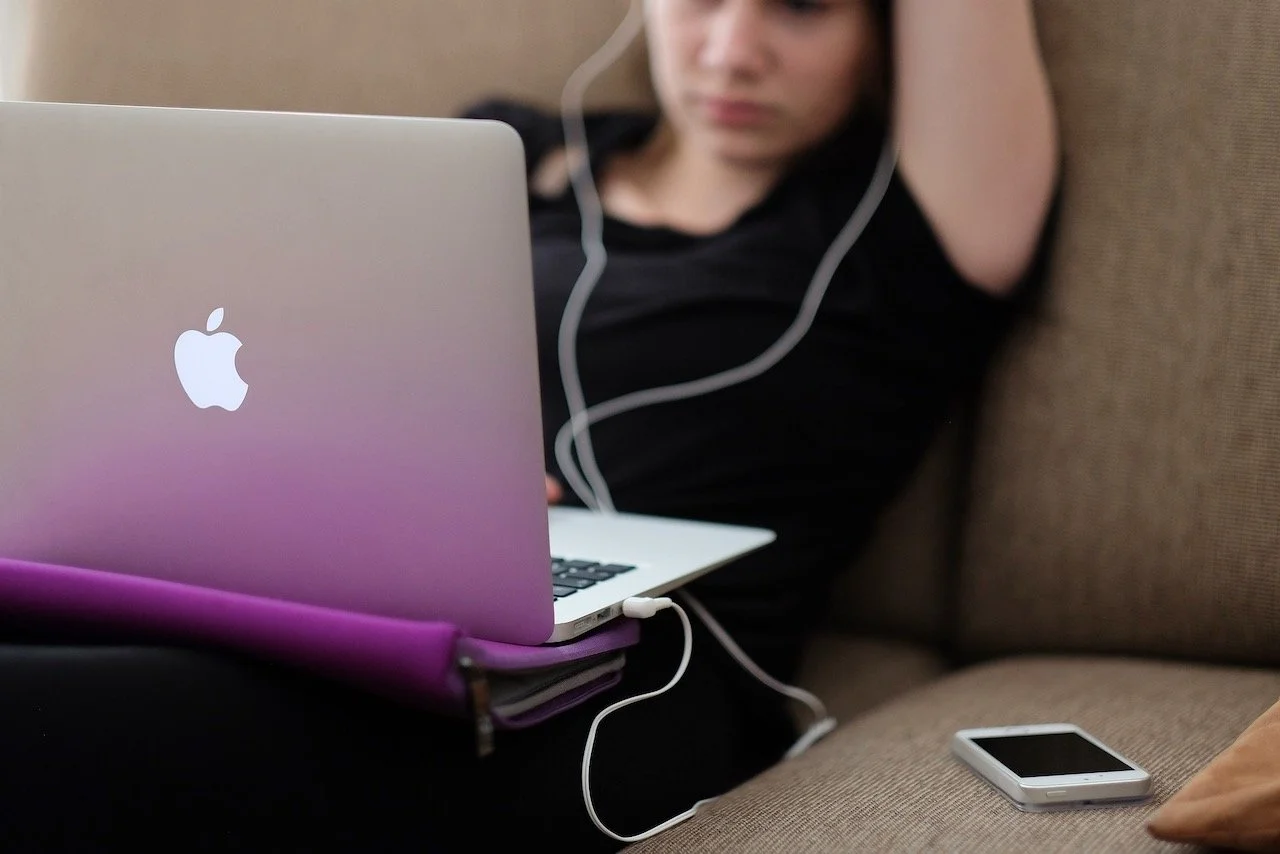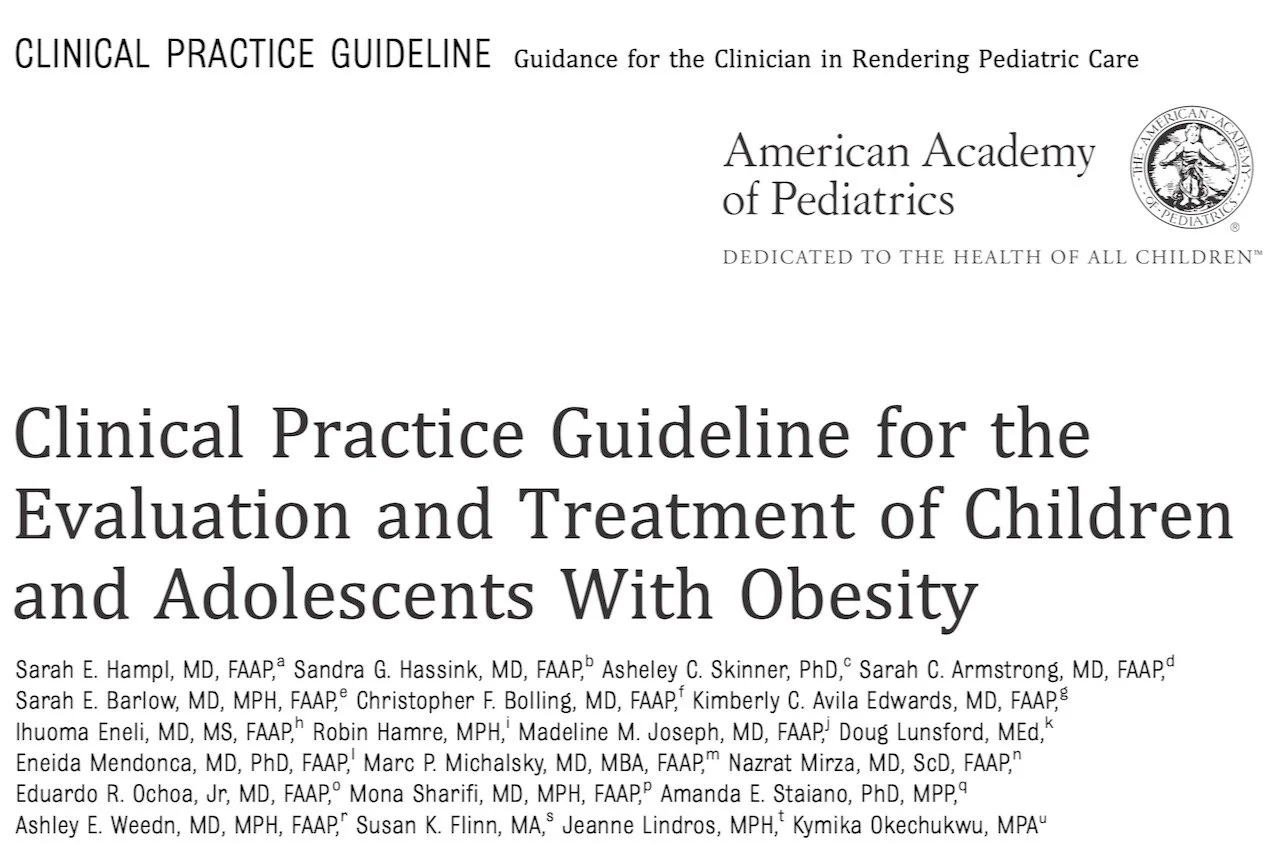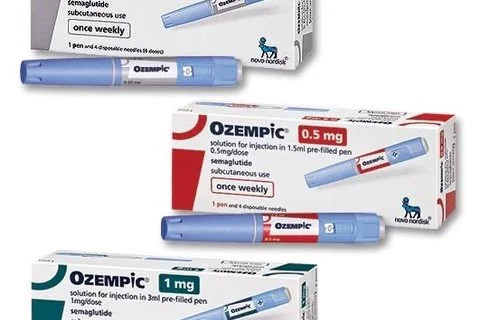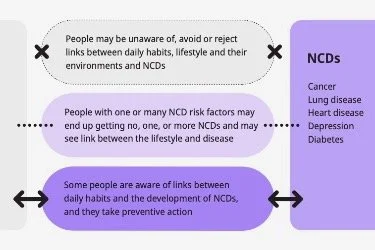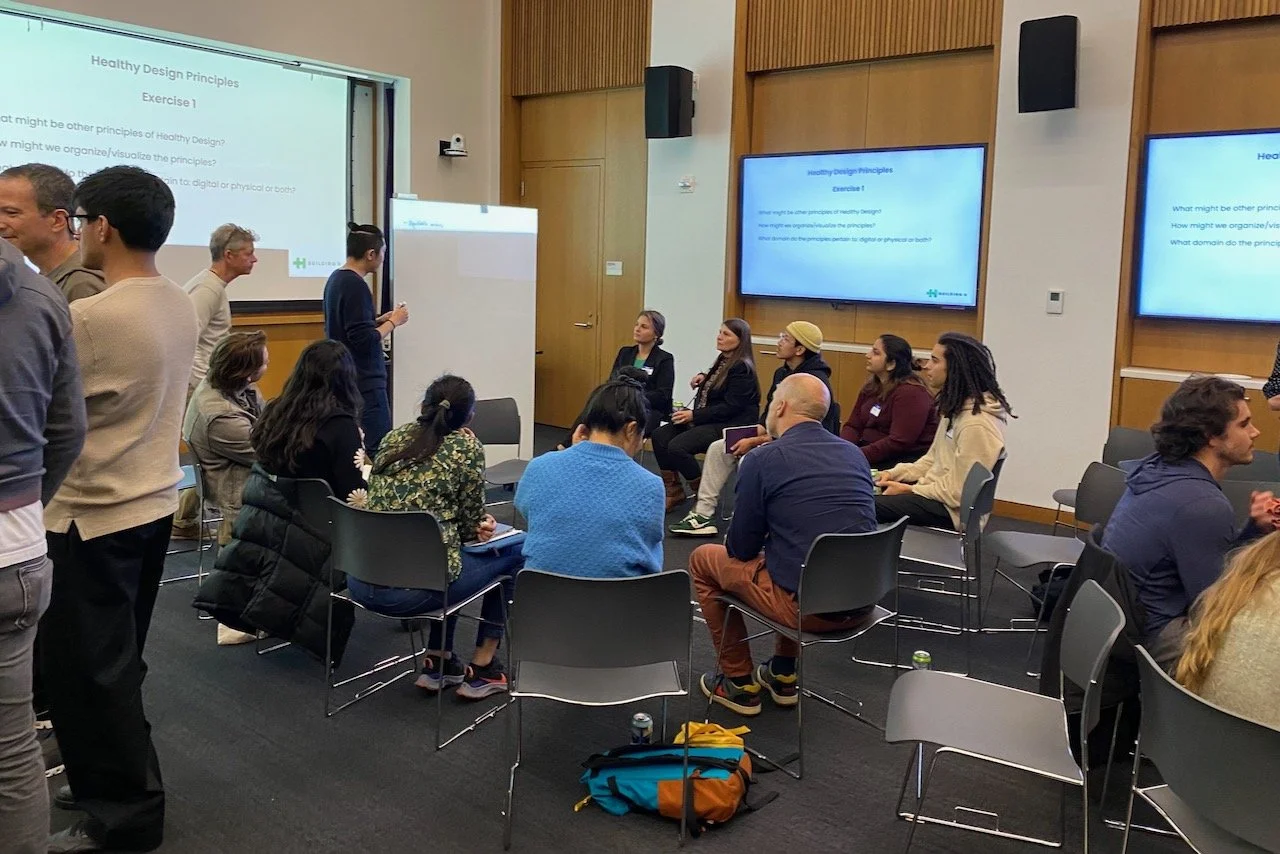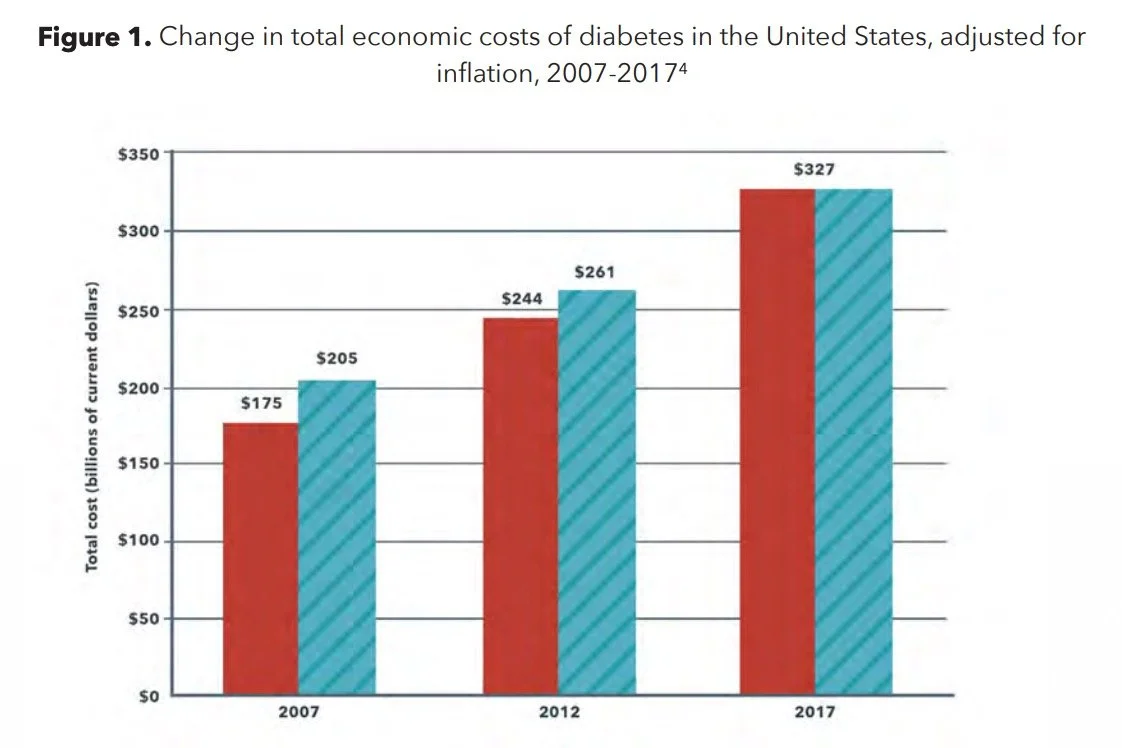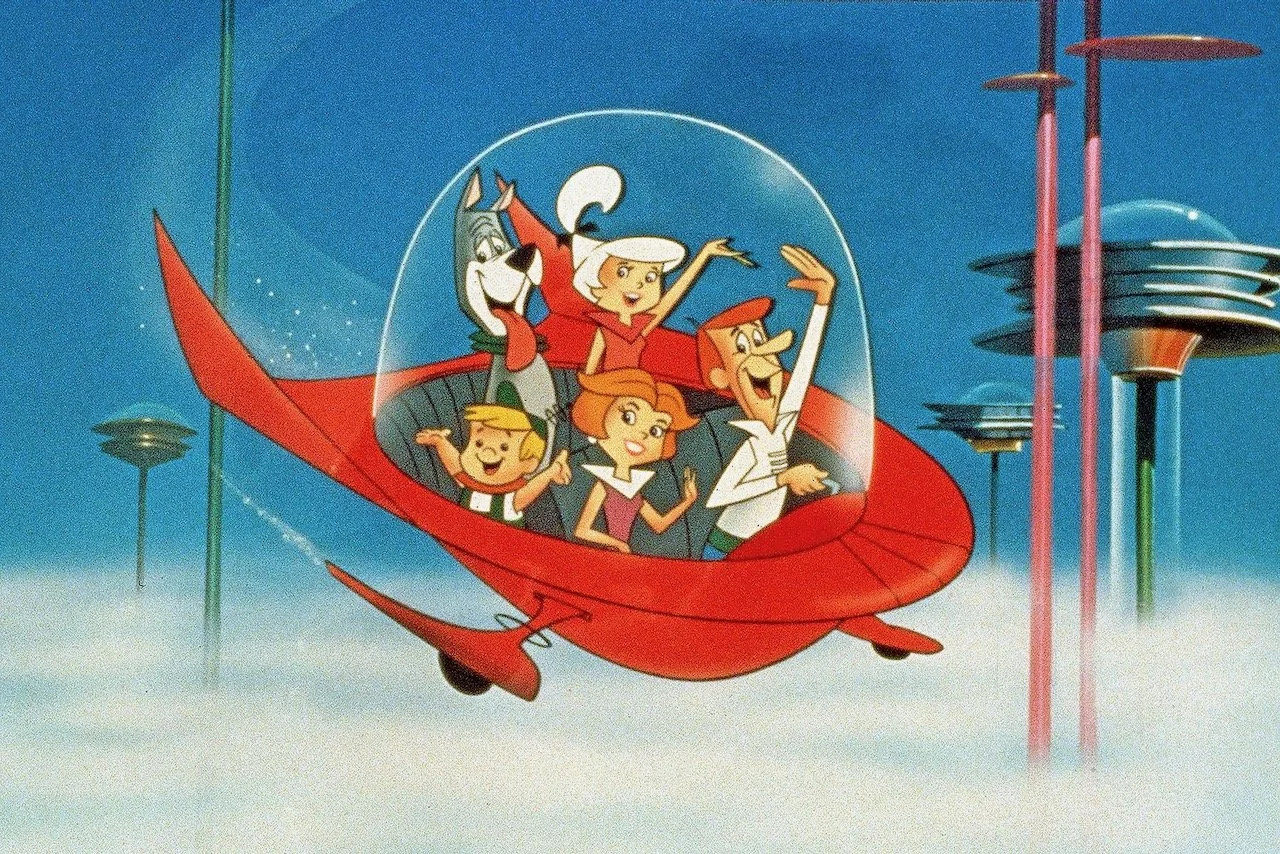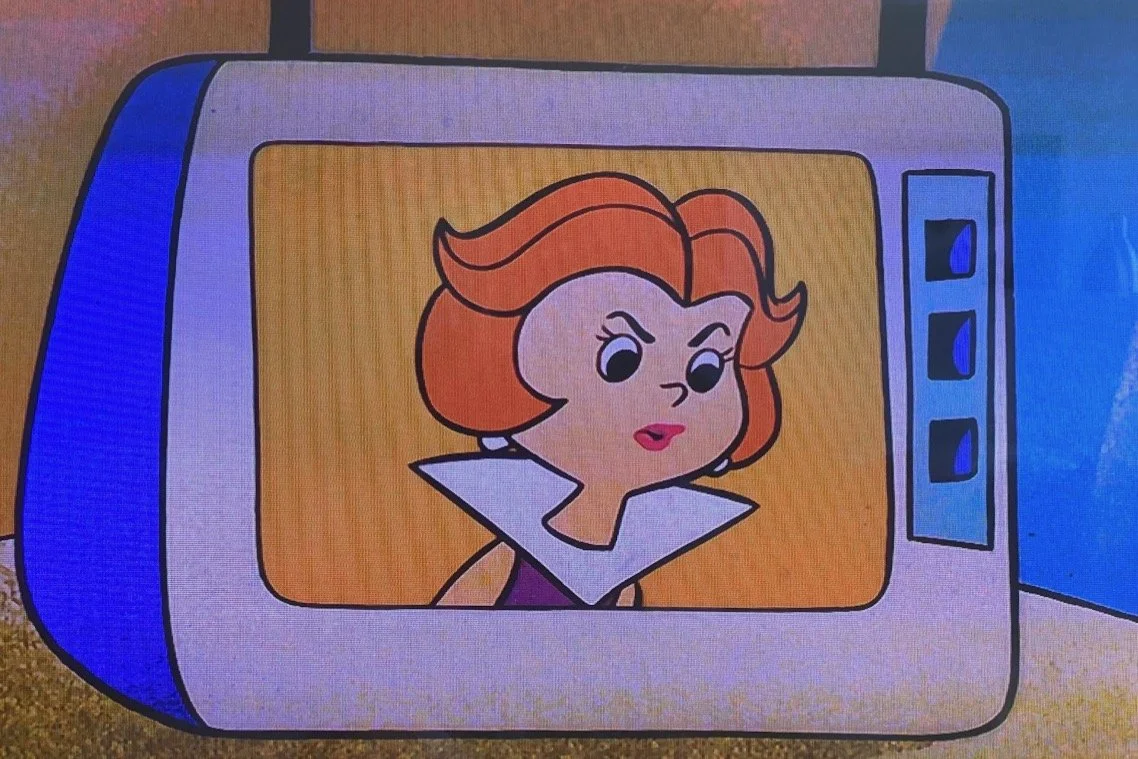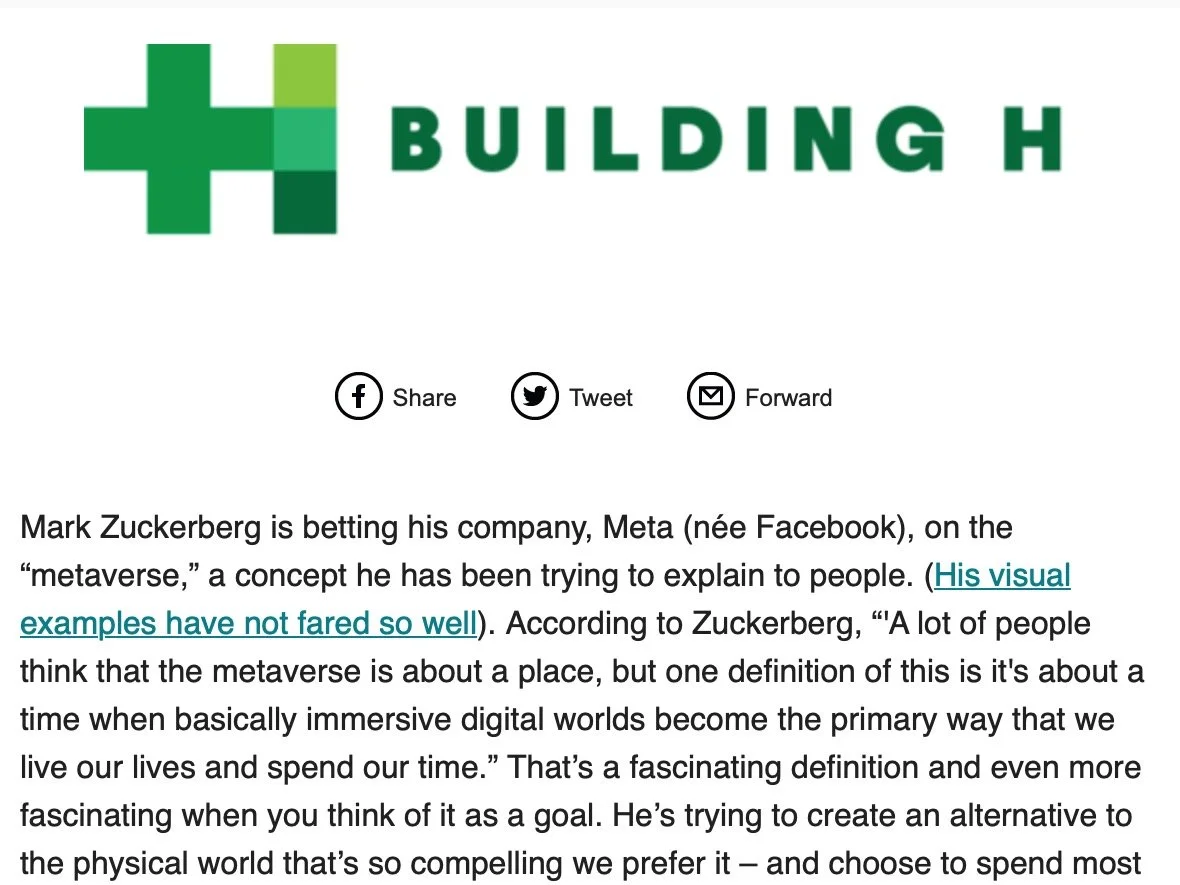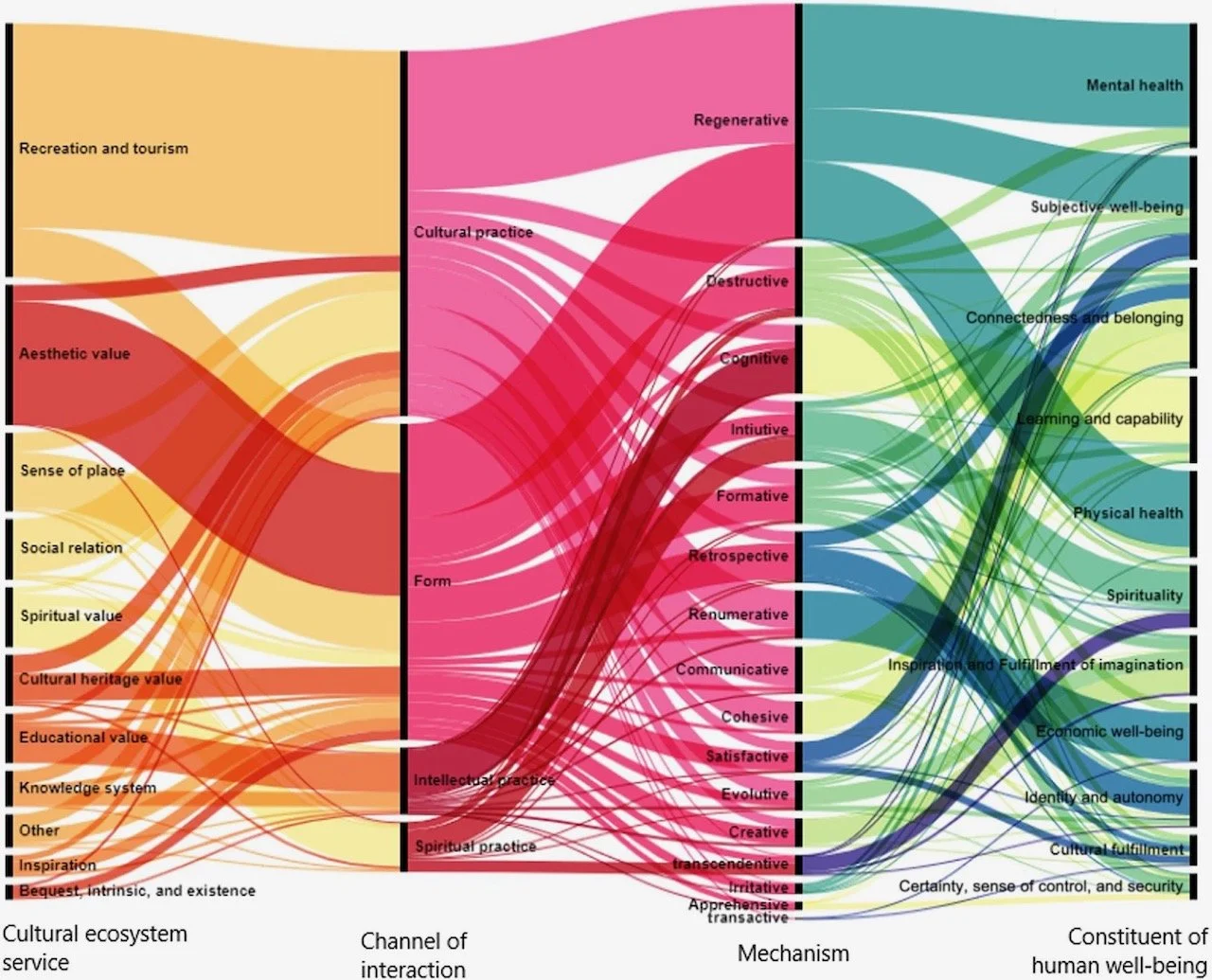The well-known venture capitalist (and inventor of the browser) Marc Andreessen recently sounded the alarm about the social implications of the rise of remote work. While more and more people have gradually returned to their offices, the numbers are roughly half of what they were before the pandemic.
Read MoreThe American Academy of Pediatrics issued new guidelines last month for the treatment of children with obesity. The guidelines are aggressive and represent a significant escalation from previous recommendations.
Read MoreBack in the early days of the pandemic, Brittany Sigler connected with us on Twitter and became a key contributor to our first Building H Index report. She then took the question that motivates us – what would it take to make companies offer healthier products – and pursued it as the basis of her doctoral dissertation, with our longtime collaborator Sara Singer as one of her advisors.
Read MoreBack in May we covered the buzz about a new class of weight loss drugs that were showing great promise in clinical trials. Fast forward seven months and there’s a new buzz: demand for the diabetes drug Ozempic and the weight loss drug Wegovy (which is based on a higher dose of semaglutide, the active ingredient in Ozempic) is through the roof – leading to shortages.
Read MorePerhaps the central challenge of public health, and in turn of this Building H project, is to improve the public understanding of how everyday behaviors - our habits, routines, customs, beliefs - manifest into unintended outcomes, those so-called diseases of civilization: obesity, cancer, lung disease, heart disease, depression, diabetes and so on.
Read MoreTwo articles in this edition speak to the complex interplay among our environments, our lifestyles, our bodies, our minds, and our underlying biology. The Economist takes a hard look at antidepressants, raising a number of concerns about their widespread use, the hit-or-miss nature of their effectiveness, the increasing skepticism about the underlying science, the difficulty of weaning off of them, and the increasing hazards they pose for older users.
Read MoreOur biggest project at Building H is the Building H index. Last April, our index ranked and rated products and services from 37 companies on how they affect the health of their customers. The report got great national coverage, with Fast Company covering the release and the issue of how the product environment affects public health. We were also pleased that many of the companies we profiled engaged in the process as well.
And now: time for the next edition of the Index!
This edition of the newsletter is like a reverse mullet: a party up front, and all business in the back.
First, the party!
We’re thrilled to announce two in-person Building H meet-ups next month in New York and Boston to get input, ideas, and share progress on our Healthy Design Principles.
Please join us! You can sign up on Eventbrite for Wednesday November 2 in Brooklyn or Wednesday November 9 in Boston.
Read MoreIn an article for Slate, Building H co-founder Steve Downs looks at the enduring influence of The Jetsons, a cartoon sitcom launched in 1962. The Jetsons gave us a vision of technology could shape our world — it gave us flying cars, moving sidewalks, robot maids, and even nuclear-powered dogs. Implicit in this vision was that technology would utter in a lifestyle of exceptional convenience — everything could be summoned or performed with the touch of a button or a simple voice command.
Read MoreEmbedded cultural assumptions about how technology will shape our lives has had profound consequences for our health. Steve makes this argument in an article posted this morning in Slate: The Jetsons, Now 60 Years Old, Is Iconic. That’s a Problem. He uses the 60th anniversary of the cartoon sitcom to reflect on the world its creators envisioned, the enduring influence that vision has had, the lifestyles that resulted, and the need for new visions in which technology supports the everyday behaviors that humans need to thrive.
Read MoreLife expectancy in the US is down again, according to a new report released by the National Center for Health Statistics. Overall life expectancy dropped nearly three years – from 79 to 76 – over the last two years, the largest two-year drop in 100 years.
Read MoreMark Zuckerberg is betting his company, Meta (née Facebook), on the “metaverse,” a concept he has been trying to explain to people. (His visual examples have not fared so well). According to Zuckerberg, “'A lot of people think that the metaverse is about a place, but one definition of this is it's about a time when basically immersive digital worlds become the primary way that we live our lives and spend our time.”
Read MoreAt Building H, our very name suggests that we need to, you know, BUILD something to achieve health. But part of our hypothesis has always been that an essential part of a healthy environment is the outdoors - that our time spent in the built environment and the product environment need to be countered with time in nature.
Read MoreLast week Apple released an unexpected, 60-page report that sums up their health efforts, which have been building up over the last eight years. It was unexpected because Apple usually makes news by introducing new products or reporting on financial performance. So it’s not clear why they released it, but in any case, it provides a good overview of both the range and the coherence of their work to improve health.
Read MoreWe talk a lot at Building H about the ways that modern life affects our health-related behaviors. One of the biggest casualties of the modern lifestyle is cooking dinner at home, which has been on a long slow decline. (See Amanda Mull’s excellent “How America Lost Dinner” for a rundown of the many factors involved.)
Read MoreWe’re excited to share the results of a speculative design project we supported with students from the University of Washington’s Human-Centered Design and Engineering department. Aichen Sun, Eeshani Mondal, Elen Liu and Samrudha Malandkar have created deliz, a speculative design for a service that makes it easy and fun for people to cook at home.
Read MoreGetting outdoors is good for people – it can lower stress levels, lower blood pressure and heart rate, increase immune function, help align circadian rhythms (and thus lead to better sleep), build stronger bones and even reduce myopia in children. It’s an important – if often overlooked – health behavior.
Read MoreSo much of our economy is based on the challenge of figuring out what consumers want and then delivering the products and services that meet those demands. But how do we know what people want?
Read MoreA couple weeks ago, Steve and Thomas invited folks in the San Francisco area to join us in an office across from South Park for a face-to-face, in-person, real-life, here-and-now, bonafide meetup. Like one of those pre-2020 things where people interested in one something “meet up” to talk and share ideas.
It was awesome.
We’ve long argued that to improve the public’s health, we need a product environment (i.e. the products and services that shape our everyday behaviors) that is healthy by design. And that achieving this outcome will take leadership: collective intention and collective will, in both the private and public sectors. Two stories in this edition speak to the challenges and possibilities of engaging that leadership and marshaling the resources to achieve positive social impact.
Read More
